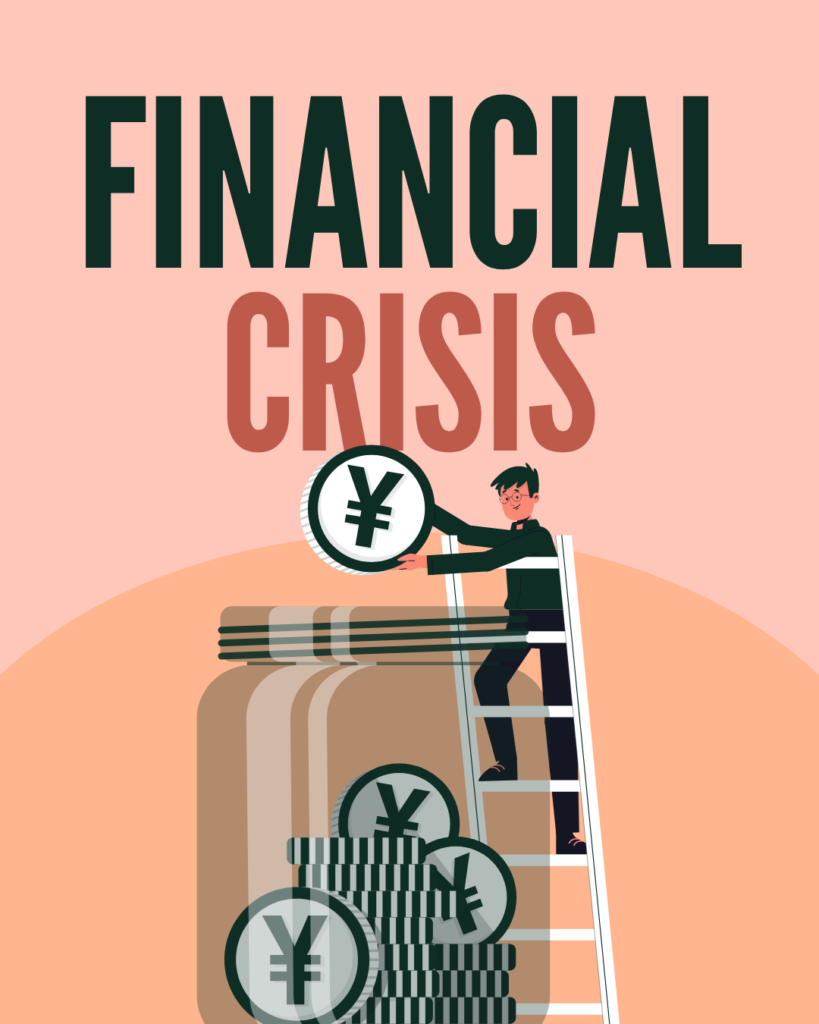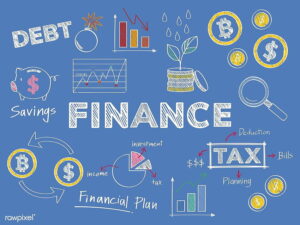To buy Hyundai inventory in India, you want to follow...
Read MoreMost Recent Blogs
Kyle Verreynne Net Worth
An industrious South African cricketer, Kyle Verreynne has done well...
Read MoreDeepak Mohoni Net Worth in 2024
Deepak Mohoni is a famous call within the Indian stock...
Read MoreSherrone Moore net worth in 2024
Sherrone was born on 31st December in the year 1974,...
Read MoreYour Financial Education
Financial Education वित्तीय शिक्षा आपके धन का कुशलतापूर्वक प्रबंधन करने...
Read MoreTolins Tyres IPO Share Price
Tolins Tyres IPO share Price Tolins Tyres is gearing up...
Read MoreKross Limited Share Price
Kross Limited share price Kross Limited is a distinguished player...
Read MoreBrett Rypien Net Worth
Brett Rypien net worth American football quarter back Brett Rypien...
Read Morewhat is Financial Planning?
Financial planning is a comprehensive approach to handling your price...
Read MorePopular Blogs
Bill Pascrell Net Worth in 2024
Bill Pascrell net worth: Bill Pascrell’s net worth is a...
Read MoreWhat is Nutrition? : Nutrition and Mental Health
Nutrition is the cornerstone of a healthy lifestyle. It encompasses...
Read MoreDecoding Variables: Understanding Their Significance and Functionality
Variables lie at the core of programming and data analysis....
Read MoreGuide to Creating Stunning Web Pages by HTML
HTML stands as the cornerstone, the bedrock upon which the...
Read MoreWithin the substantial realm of economics, the study of finance emerges as a crucial field. It delves into the allocation of economic assets, the mechanisms of cash and credit, and the complicated dance between danger and go back . Finance acts because the bridge among monetary idea and actual-world programs, offering a framework for expertise how people, businesses, and governments make selections involving money and investments finance in economics. This exploration sheds mild on critical financial phenomena, from marketplace fluctuations and interest prices to the performance of monetary markets and the elements influencing monetary growth. By dissecting economic contraptions and their interactions, finance unlocks treasured insights that tell economic coverage, guide funding techniques, and in the end make a contribution to a greater solid and wealthy monetary landscape.
Table of Contents
ToggleDefining Finance and its Role in Economics
Finance is the observe of how money and monetary assets are controlled. It delves into the allocation of capital, the mechanisms of cash and credit, and the ever-gift relationship between hazard and return. While economics makes a speciality of the broader picture of production, distribution, and consumption of goods and services, finance zooms in on the intricacies of the way these activities are financed finance in economics.
Think of finance as the bridge connecting financial idea to practical applications. It provides a framework for knowledge how individuals, agencies, and governments make choices regarding money and investments. This understanding sheds light on vital monetary phenomena like:
- Market fluctuations: How do modifications in investor sentiment or monetary situations have an effect on inventory prices, hobby costs, and currency exchange?
- Financial markets: How efficiently do markets allocate capital to businesses and tasks with the highest potential returns?
- Economic growth: How do factors like get admission to to credit, funding degrees, and economic stability affect a state’s economic fitness?
By analyzing monetary contraptions and their interactions, finance unlocks treasured insights that tell:
- Economic policy: Governments use financial gear like hobby fees and guidelines to steer economic pastime.
- Investment techniques: Understanding economic markets and danger enables people and groups make knowledgeable funding choices.
- Financial balance: Building a strong monetary machine is crucial for a wholesome and sustainable economy.
In essence, finance acts because the engine room, powering monetary interest with the aid of making sure green allocation of assets and fostering a dynamic surroundings for investment and growth.
Why Study Financial Economics?
Financial economics offers a compelling blend of theory and practical software, making it a valuable subject of look at for various reasons:
- Understanding the Financial World: Financial economics equips you with the information to navigate the complexities of financial markets, investments, and economic trends. You’ll gain insights into how interest costs, inflation, and marketplace fluctuations impact non-public and commercial enterprise selections.
- Informed Decision-Making: Whether you are managing your very own budget, advising clients, or shaping financial policy, financial economics empowers you to make knowledgeable selections primarily based on a robust foundation in financial principles and financial evaluation finance in economics.
- Career Opportunities: Financial economics opens doorways to a extensive range of profitable careers in finance, banking, funding management, consulting, or even authorities groups. The competencies to procure are tremendously sought-after throughout various sectors.
- Problem-fixing Skills: Financial economics hones your analytical and trouble-fixing abilities. You’ll discover ways to verify complicated monetary situations, discover dangers and possibilities, and develop techniques to reap economic dreams.
- Lifelong Learning: The monetary international is constantly evolving. Studying economic economics equips you with the equipment to stay modern-day on traits, adapt to converting market conditions, and continuously decorate your know-how.
- Globalized World: Financial markets are interconnected throughout the globe. Understanding economic economics lets in you to research international monetary tendencies and make informed selections in a globalized environment.
In end, financial economics gives a treasured lens for knowledge now not simply monetary markets, but also the wider financial landscape finance in economics. It equips you with the understanding and talents to navigate the complexities of the monetary international, make sound decisions, and thrive in a dynamic economic surroundings.
Financial Decisions of Individuals and Firms

Individual:
Focus: Financial decisions for individuals primarily center around personal financial well-being and achieving long-term financial goals like retirement or homeownership.
- Decision Examples:
- Savings & Investments: Deciding how much to save from income, allocating funds across different investment options (stocks, bonds, real estate), and balancing risk and return finance in economics.
- Debt Management: Taking on debt (mortgages, student loans) for major purchases, managing credit card debt, and making strategic decisions about debt repayment.
- Budgeting & Cash Flow Management: Creating a budget to track income and expenses, managing cash flow to meet short-term needs and long-term goals.
- Insurance: Choosing appropriate insurance coverage (health, life, auto) to manage risk and protect assets.
Firms:
- Focus: Financial decisions for firms revolve around maximizing shareholder wealth and ensuring the long-term financial health and sustainability of the business.
- Decision Examples:
- Capital Budgeting: Deciding on investments in new projects, equipment, or acquisitions, considering factors like expected return, project costs, and potential risks.
- Financing Decisions: Choosing how to finance operations and investments, considering options like debt financing (loans), equity financing (issuing stock), or a combination of both.
- Dividend Policy: Determining how much profit to distribute to shareholders as dividends and how much to retain for reinvestment in the company’s growth.
- Cash Flow Management: Managing cash flow to ensure sufficient funds for operational needs, debt obligations, and potential investments.
Key Differences:
- Risk Tolerance: Individuals typically have a lower chance tolerance as compared to firms. They prioritize economic safety and can prioritize lower-risk investments. Firms may be inclined to take on extra danger to attain better capability returns.
- Time Horizon: Individual monetary decisions often have a long-term recognition, but the time horizon can be flexible finance in economics. Firms regularly face shorter-time period pressures alongside lengthy-time period issues.
- Information and Resources: Individuals may have confined financial information and sources as compared to firms with committed finance departments and get entry to to expert economic recommendation.
Similarities:
- Both people and companies need to do not forget factors like danger, go back, and possibility fee whilst making financial decisions.
- Both try to make informed selections based totally on available information and their respective monetary dreams.
- Financial literacy is critical for both individuals and companies to navigate the monetary landscape correctly.
The Financial System

The economic device acts as the lifeblood of any economic system, facilitating the waft of finances between those who’ve financial savings (investors) and people who want capital (borrowers). It’s a complex environment comprised of two key additives:
- Financial Markets: These are structures wherein economic units like stocks, bonds, and derivatives are traded finance in economics. They offer a mechanism for the change of finances among investors and debtors.
- Financial Institutions: These are entities that act as intermediaries in the economic gadget. They channel funds from savers to debtors, manipulate financial risks, and provide a variety of economic offerings.
Financial Markets: Where Deals Get Done
There are 3 predominant kinds of financial markets, each serving a wonderful cause:
- Money Market: This market offers with short-time period (generally much less than a year) debt contraptions like treasury bills, industrial paper, and certificate of deposit. Businesses and governments use the money marketplace to elevate brief-time period budget, even as buyers can discover steady and liquid investments.
- Capital Market: This market focuses on lengthy-term financing. It encompasses the buying and promoting of stocks, bonds, and different lengthy-term securities. Businesses improve capital with the aid of issuing shares and bonds, while investors can potentially earn higher returns over an extended funding horizon.
- Derivatives Market: This marketplace deals with economic contracts (derivatives) whose value is derived from underlying property like shares, bonds, or commodities. Derivatives are used to manage danger, speculate on fee movements, and hedge in opposition to capability losses.
Functions of the Financial System: Keeping it Flowing
The monetary device fulfills numerous crucial functions within an economic system:
- Facilitates Investment: By connecting savers and debtors, the monetary machine allows investments that fuel monetary increase. Businesses can access capital for growth, innovation, and task creation, whilst individuals can make investments for their destiny dreams like retirement.
- Risk Management: Financial establishments help manage threat with the aid of supplying offerings like insurance and diversification options. This enables protect people and groups from unforeseen financial losses.
- Price Discovery: Financial markets establish costs for monetary instruments based on supply and call for. These rate signals provide valuable information for buyers and groups when making economic choices.
- Mobilization of Savings: The economic machine channels savings from people and institutions toward productive investments finance in economics. This efficient allocation of assets can cause improved monetary productiveness and boom.
- Economic Stability: A properly-functioning economic system promotes monetary balance by using facilitating responsible lending practices, dealing with dangers, and ensuring the smooth flow of credit in the course of the economy.
In end, the financial machine plays a essential role in any economy. By fostering funding, coping with risks, and successfully allocating assets, it lays the foundation for sustainable financial increase and prosperity.
Time Value of Money
The concept of time price of money (TVM) is a fundamental principle in finance. It recognizes that a greenback today is well worth extra than a dollar the next day. Why? Because cash has the capability to earn interest over time finance in economics. This precept paperwork the premise for numerous economic calculations and selection-making tactics.
Key Concepts:
- Present Value (PV): The cutting-edge well worth of a future amount of cash, discounted returned to the prevailing the usage of the correct interest charge.
- Future Value (FV): The fee of a modern-day amount of cash in the future, considering the impact of hobby through the years.
- Discounted Cash Flow (DCF) Analysis: This approach makes use of the time cost of cash to evaluate the profitability of an funding. It considers all the cash flows (both positive and terrible) related to the investment, discounted lower back to their present price, to decide its net present price (NPV).
A effective NPV suggests a doubtlessly profitable funding, whilst a negative NPV shows it won’t be profitable. DCF analysis is important for agencies when making capital budgeting selections (e.G., making an investment in new equipment or initiatives).
Interest Rates and Impact:
- Interest Rates: The fee of go back earned on an investment or the value of borrowing money.
- Impact on PV and FV: Higher interest quotes bring about a decrease present price (PV) for a future amount of money and a higher destiny fee (FV) for a modern-day amount of money finance in economics. This is because the cash has the capability to grow at a faster rate.
Understanding the time fee of money empowers you to:
- Compare investment alternatives: By calculating the present value of future cash flows, you may examine distinct investment possibilities and choose the only that gives the best go back capability.
- Make informed borrowing selections: Considering the effect of hobby quotes on mortgage repayments facilitates you are making responsible borrowing choices and control debt successfully.
- Value future earnings streams: You can verify the existing fee of future earnings streams, including a pension or apartment profits, to apprehend their true worth.
In essence, the time fee of cash equips you with the gear to make sound financial choices by way of considering the vital component of time and its impact on the fee of money
Risk and Return: The Balancing Act

In the world of funding, there’s a fundamental principle: chance and return are directly related. This manner that investments with the capacity for higher returns typically come with a greater chance of loss. Conversely, more secure investments with lower hazard generally offer lower capability returns.
Imagine you are on a hike. You have two paths to choose from. One route is a well-maintained, paved path that ends in a scenic neglect finance in economics. The other course is a steep, rocky climb that results in a hidden waterfall. The paved trail is the lower-threat alternative – it is smooth to walk on and you are not likely to get harm. However, the view from the neglect might not be that marvelous. The rocky climb is the better-chance choice – there may be a danger you may slip and fall. But if you make it to the pinnacle, the waterfall can be an notable sight.
Measuring Risk and Return
So, how can we degree chance and go back in investments? Here are 3 not unusual metrics:
- Standard Deviation (Volatility): This measures how a great deal the price of an funding fluctuates over the years. A higher widespread deviation shows a extra risky investment, this means that its rate may want to swing up and down greater dramatically.
- Beta (Relative Risk): This compares the volatility of an investment to the overall market. A beta of 1 means the investment’s price is expected to move in line with the market. A beta greater than 1 means the investment is expected to be more volatile than the market, and a beta less than 1 means the investment is expected to be less volatile than the market.
- Value at Risk (VaR): This estimates the maximum potential loss of an investment over a specific period of time, at a given level of confidence. For example, a VaR of 5% at a one-day confidence level means that there’s a 95% chance that the investment won’t lose more than 5% in a single day
The Risk-Return Tradeoff: Balancing Risk Tolerance with Return Expectations
Investors want to find the proper stability between risk and go back that suits their personal threat tolerance and funding goals finance in economics. Risk tolerance is how tons threat you’re comfortable taking up. Some buyers are extra chance-averse and prefer to prioritize capital renovation, even though it way sacrificing a few ability returns. Others are extra hazard-tolerant and are inclined to tackle extra risk in alternate for the chance of higher returns.
Time Value of Money: It's All About Timing
Key standards of Time Value of Money
The primary ideas of time price of money are present fee (PV) and future value (FV).
- Present Value (PV): The present value is the present day really worth of a future sum of money. In different phrases, it’s the quantity of money you would want to invest nowadays at a given hobby price to equal a selected amount of money within the destiny.
- Future Value (FV): The future value is the value of a current amount of cash at a destiny date, assuming a selected interest charge is applied.
Discounted Cash Flow (DCF) Analysis
Discounted cash flow (DCF) analysis is a technique used to assess the profitability of an investment by way of thinking about the cash flows which might be anticipated to be generated over the life of the investment, with the coins flows being discounted again to their present cost finance in economics. This is vital due to the fact a dollar obtained today is well worth more than a dollar acquired inside the destiny, because of the time value of money.
Interest Rates and Impact
Interest prices play a massive function inside the time price of cash. Higher interest prices will bring about a lower gift cost and a better future fee. This is due to the fact the money can develop at a quicker price over the years with a higher interest fee.
Here is an example to demonstrate the effect of time fee of money. Let’s say you invest $1,000 these days at an annual hobby rate of 5%. In 5 years, the future fee of your investment can be $1,276.28. This manner that your investment can have grown via $276.28 over the five years.
Now, let’s assume you’re thinking about investing $1,276.28 5 years from now. What might be the present cost of this funding nowadays, assuming the identical hobby charge of five%? Using the existing cost formulation, we can calculate that the existing price would be $1,000. This demonstrates how a dollar these days is really worth extra than a greenback the following day due to the time value of money.
Conclusion
The world of finance can seem complex, however the middle standards we have included – risk and return, time fee of money, and portfolio idea – are effective gear that allow you to make informed selections about your economic destiny.
By knowledge the risk-go back tradeoff, you may create an funding approach that aligns along with your danger tolerance and economic goals finance in economics. Time fee of money allows you appreciate the importance of beginning to save and invest early to maximise the capacity boom of your cash. Portfolio diversification is a key method to control risk and obtain your financial targets without sacrificing too much ability return.
Beyond these center standards, finance performs a important function in numerous monetary activities. Businesses use economic evaluation to make strategic decisions, governments utilize financial equipment to control public spending and taxation, and economic markets play a critical position in facilitating funding and financial growth.
In conclusion, a simple expertise of financial standards empowers you to:
- Make knowledgeable investment choices to obtain your financial desires.
- Manage your personal finances successfully thru budgeting, saving, and debt management.
- Gain precious insights into how groups and economies function.
By taking control of your monetary literacy, you may navigate the monetary panorama with more self assurance and make knowledgeable selections that shape your economic well-being
FAQ's
Q. What is the meaning of finance in economics?
Finance, of financing, is the technique of elevating price range or capital for any kind of expenditure. It is the technique of channeling numerous budget in the form of credit score, loans, or invested capital to those economic entities that most want them or can positioned them to the maximum productive use.
Q. What's in finance?
Finance encompasses banking, leverage or debt, credit, capital markets, money, investments, and the introduction and oversight of monetary systems. Basic monetary concepts are based on microeconomic and macroeconomic theories.
Q. What is known as finance?
Finance is defined as the management of money and includes activities such as investing, borrowing, lending, budgeting, saving, and forecasting. There are three main types of finance: (1) personal, (2) corporate, and (3) public/government. This guide will unpack the question: what is finance?
Q. Who is the father of finance?
Eugene F. Fama, 2013 Nobel laureate in monetary sciences, is extensively recognized as the “father of present day finance.” His studies is widely known in each the educational and investment communities.
Copyright © All Rights Reserved. GMS













